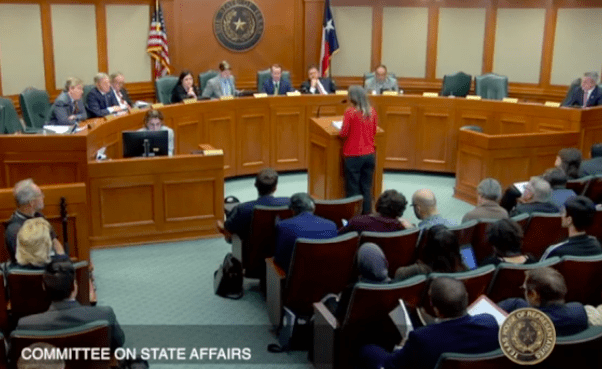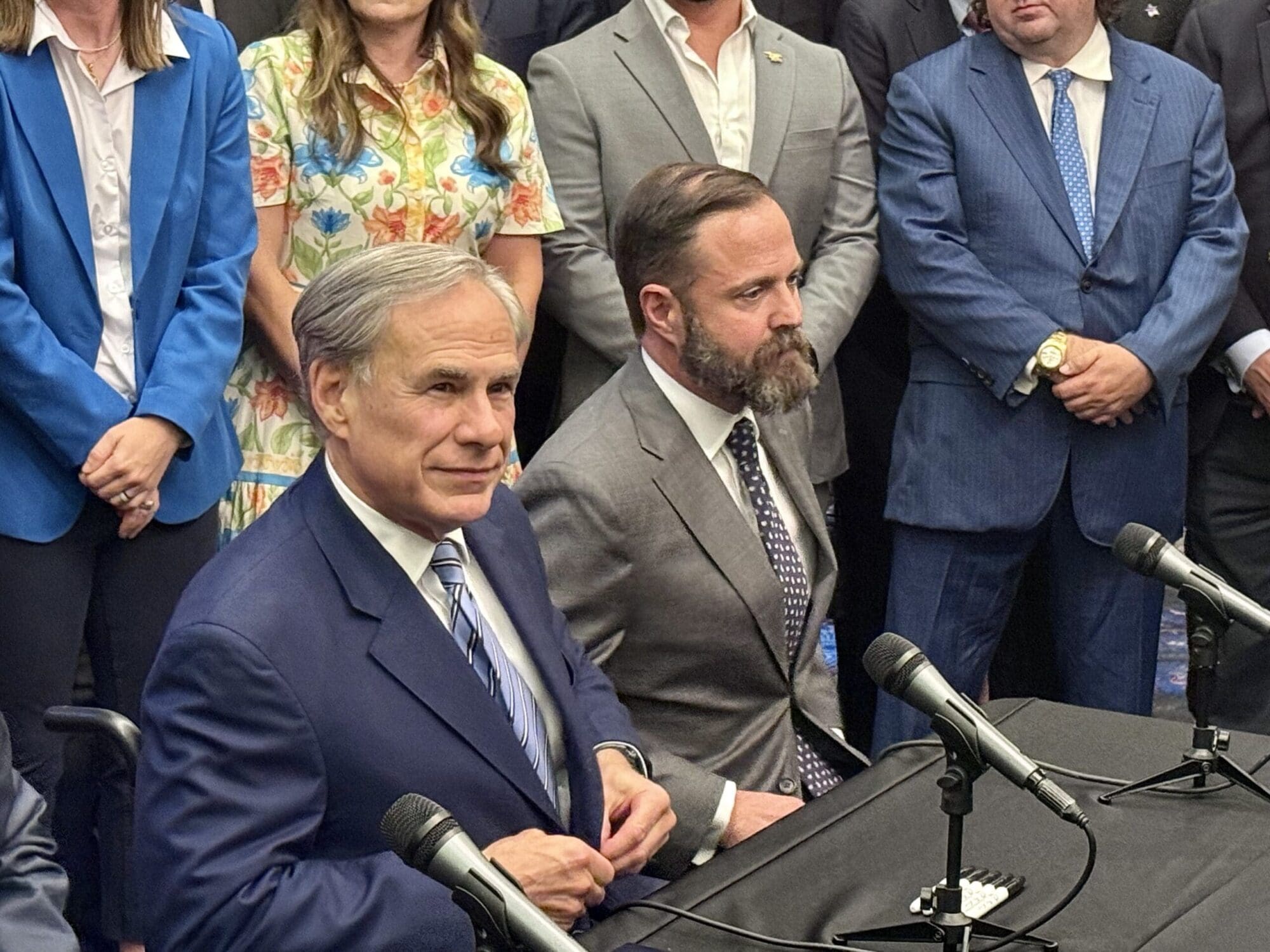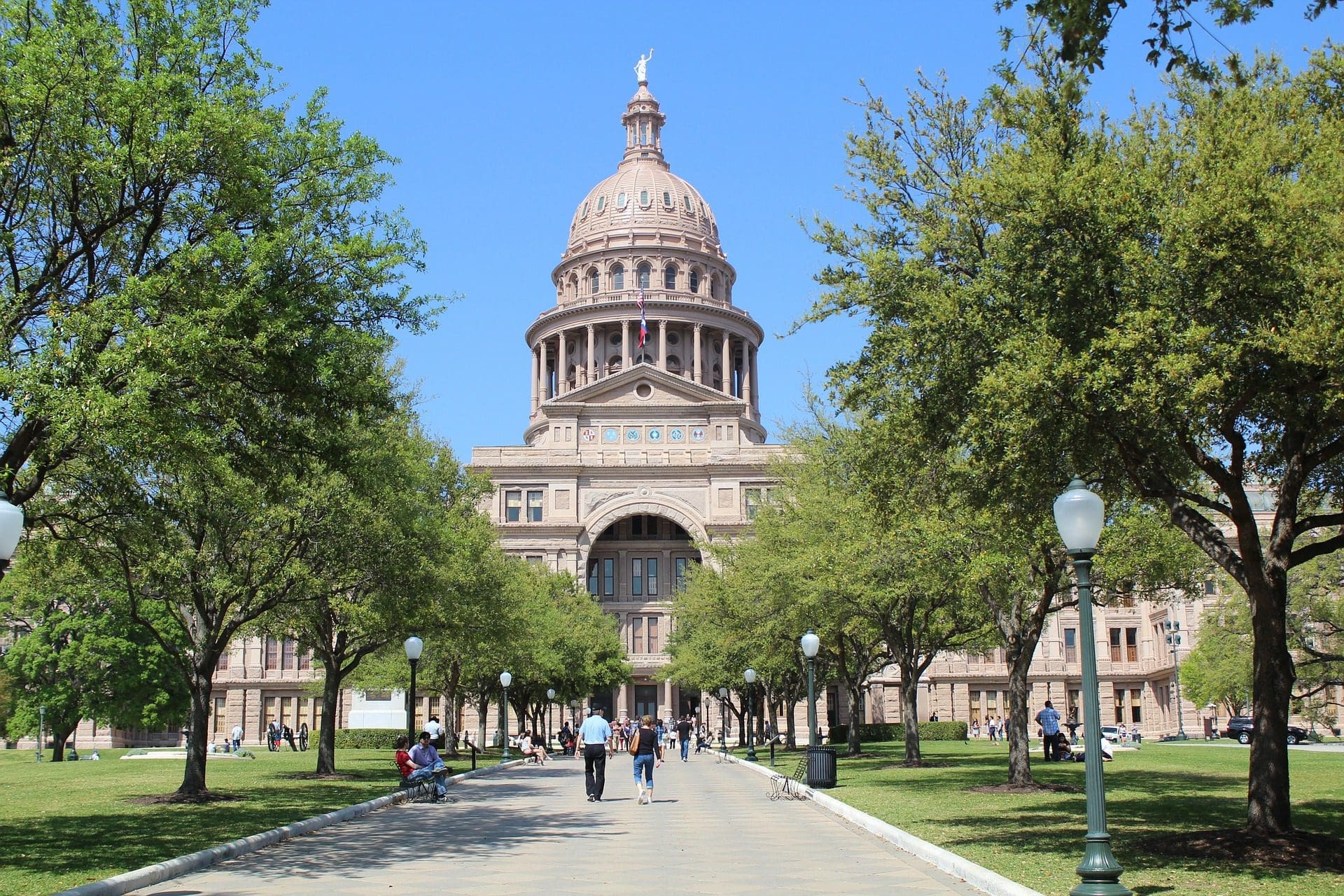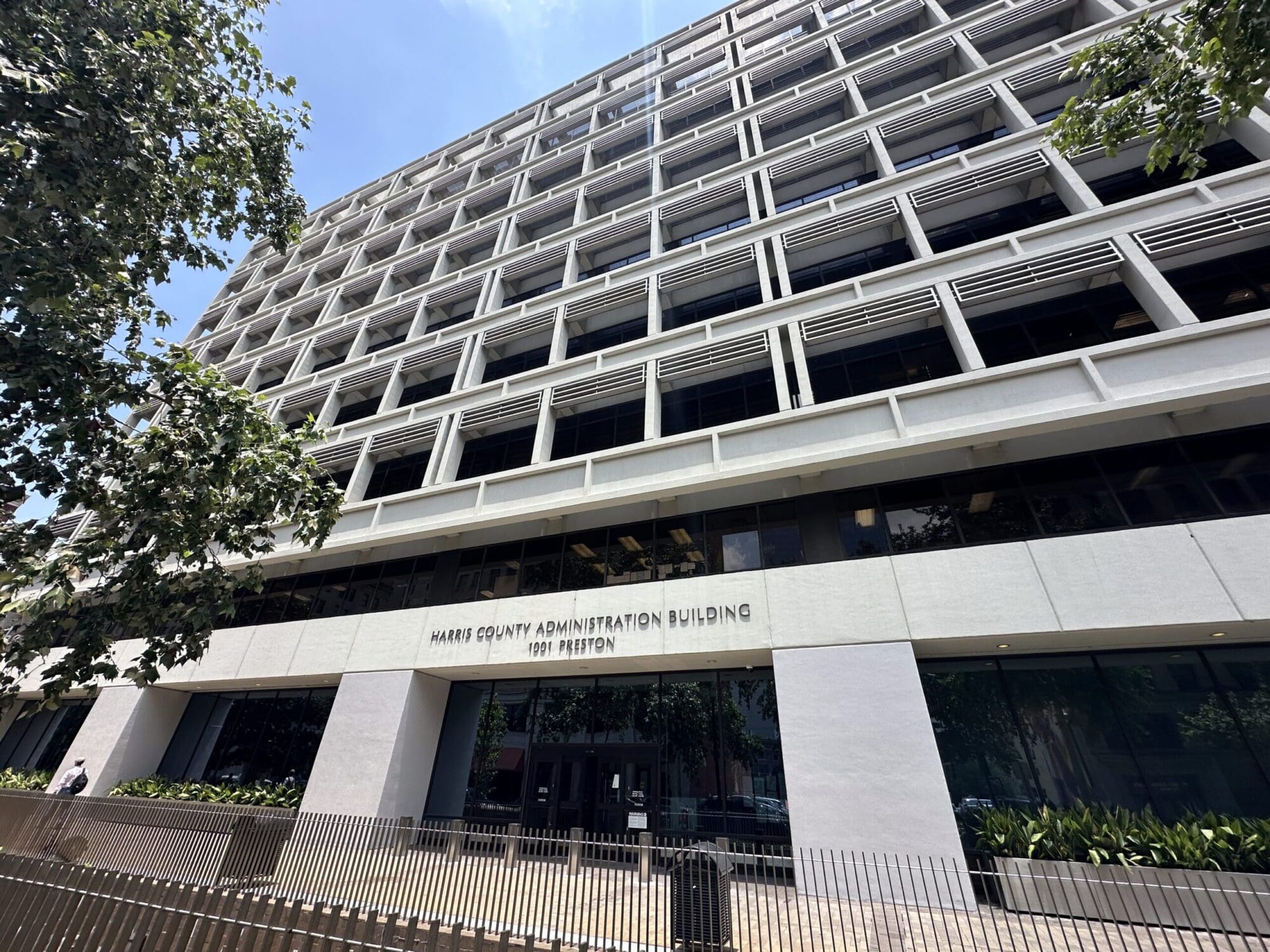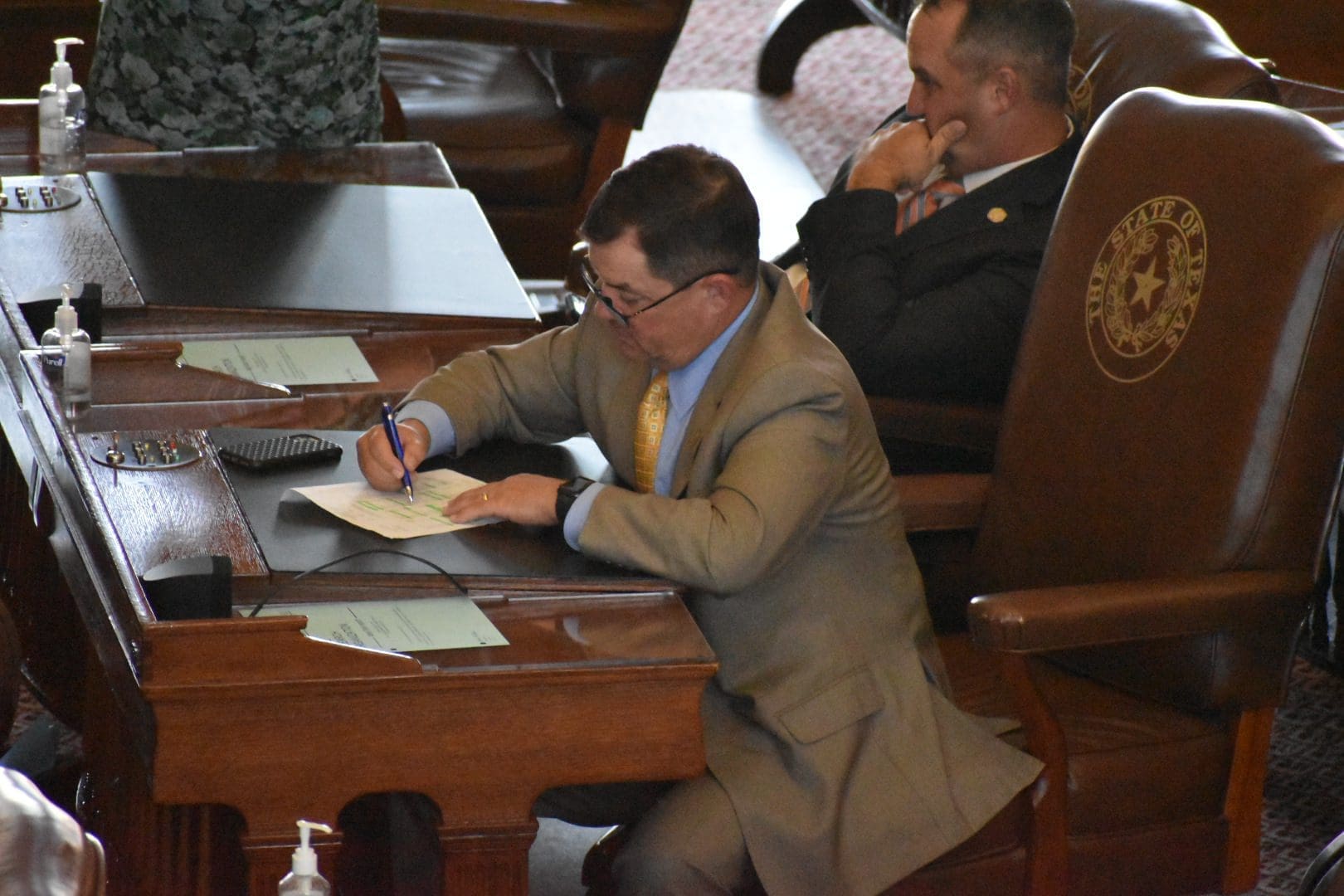A North Texas educrat went to Austin last week to defend school districts using taxpayer money to hire lobbyists—even though those lobbyists often work against taxpayers’ interests.
Trustee Becky St. John, who sits on the board of Grapevine-Colleyville Independent School District, appeared at Wednesday’s hearing of the House State Affairs Committee to testify against House Bill 281 that would ban taxpayer-funded lobbying.
St. John told the panel she was representing the Texas Association of Schools Boards (TASB), the statewide tax-funded lobbying group for school officials, in opposing the pro-taxpayer reform, which is a top legislative priority of the Republican Party of Texas.
Reading from a prepared statement, St. John told lawmakers that using taxpayers’ money to hire professional lobbyists is “the most efficient, effective, and fiscally responsible process for you and for us … to facilitate the flow of information to assist you in your lawmaking.”
Yet tax-funded lobbyists like TASB are hired to advocate on behalf of government entities, not local citizens, which frequently puts them at odds with the best interests of taxpayers.
According to its own website, “TASB represents school district interests.”
For example, the association is against measures to improve transparency and voter participation in elections that are held to increase school districts’ tax rates or debt. According to their legislative advocacy agenda:
TASB opposes legislation that curtails tax ratification election (TRE) and bond election dates from current law, increases ballot language requirements, or creates additional requirements for voter-approved TREs and bond elections, such as voter turnout thresholds.
TASB is also a vendor that sells products and services to school districts, giving them a vested interest in lobbying for higher school taxes and more education spending.
Freshman State Rep. Mayes Middleton (R–Wallisville), who filed HB 281, said his bill “levels the playing field between the taxpayers and those who are often paid to work against them.”
“The funds that are used to pay lobbyists divert money away from important community services and instead line the pockets of Austin lobbyists,” Middleton added.
St. John also claimed the bill “eliminates the ability of trustees to communicate with legislators.”
Not so, said Middleton. “House Bill 281 encourages direct communication between local communities and state legislators by removing this costly taxpayer-funded middleman.”
As a representative of both GCISD constituents and the lobby group that benefits from their tax dollars, St. John appears to have conflicting interests.
St. John has held her Place 2 seat on the GCISD board since May 2009. She was recently re-elected in a runoff last June with support from a cadre of Democrats, followers of the pro-educrat “block vote” movement, and local Tea Party favorite-turned-establishment Republican State Rep. Giovanni Capriglione, whose House District 98 includes GCISD.
While St. John lamented purported burdens to school district officials if the ban on tax-funded lobbying is enacted, the reality is that school board trustees and other elected officials have the same opportunities, and incur the same costs, to interact with lawmakers as do the citizens they represent.
Taxpayers shouldn’t be forced to fund opposition from their own governments; they deserve a level playing field.
